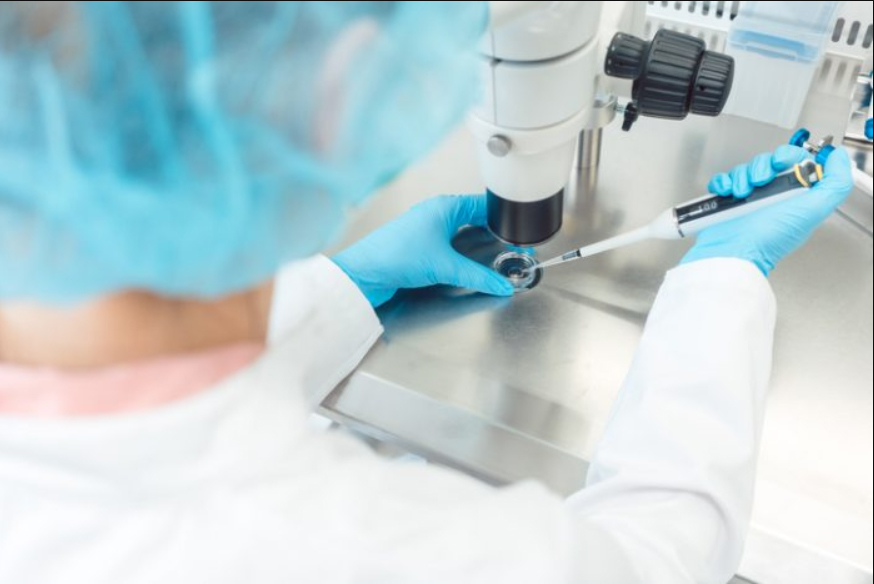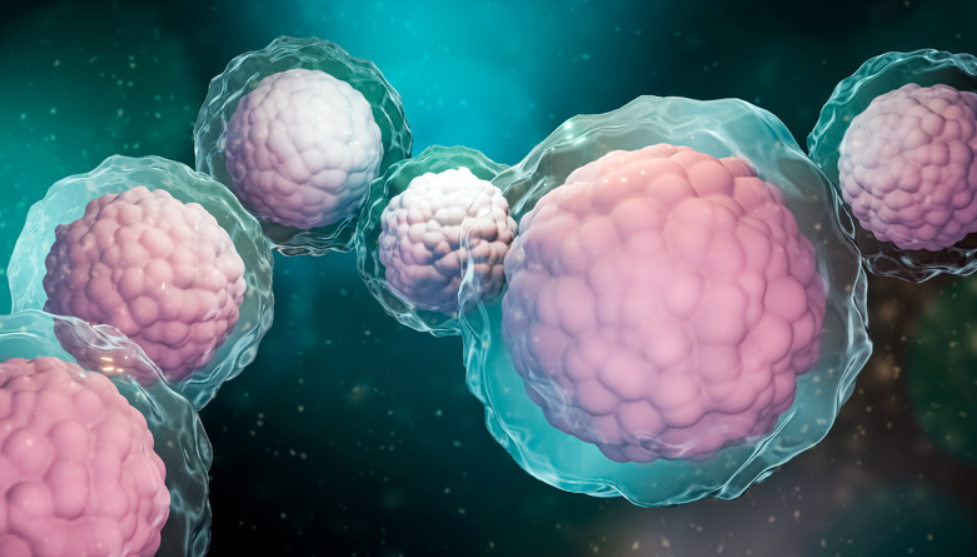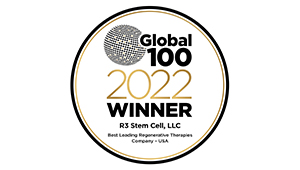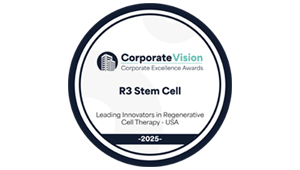17 May Stem Cell Therapy Using Aborted Fetuses – Does it work?
 Every day, people ask R3 Stem Cell if the regenerative biologics being used in treatment comes from aborted fetuses (ABSOLUTELY NOT). As a world leader in stem cell therapies with over a decade of experience in offering safe and effective treatment, it is very important for R3 to educate prospective patients and their families on where the biologics are obtained. So here’s the skinny on the cells.
Every day, people ask R3 Stem Cell if the regenerative biologics being used in treatment comes from aborted fetuses (ABSOLUTELY NOT). As a world leader in stem cell therapies with over a decade of experience in offering safe and effective treatment, it is very important for R3 to educate prospective patients and their families on where the biologics are obtained. So here’s the skinny on the cells.
First of all, R3 Stem Cell has never used aborted fetuses for any of the treatment biologics. There are several reasons for this:
- It’s an ethical issue. However one feels about using aborted fetuses for either stem cell research or treatment, no one can deny it’s a polarizing discussion.
- Fetal stem cells may not be safe. I’ll discuss this below.
While R3 Stem Cell has never used aborted fetal tissue for treatment, there are International stem cell clinics that do include it in their protocols. Why??? Allow me to explain.
Stem cells are not all the same. There are actually 2 broad categories to mention that pertain here which are:
- Embryonic stem cells – these stem cells are unique in that they can turn into ANY cell type in the human body. There are only a few ways to obtain them which are:

- Aborted fetus.
- Unused embryo from In Vitro Fertilization.
- Induced Pluripotent Stem Cells.
- Adult stem cells – all other types of stem cells fall into this category, even stem cells that come from a “fetal” type of source.
- Autologous Bone Marrow.
- Autologous Adipose Tissue
- Post Natal Tissue
- Amniotic Fluid
- Umbilical cord tissue and/or blood
- Placenta
3. Stem cells from menstrual blood (yes it’s a thing)
So even with the term “Adult Stem Cell”, the cells do not all come from an adult source. So that’s confusing. Adult Stem Cells do not have the capability that pluripotent stem cells do. This means they cannot turn into any cell type, but have limitations and are called “multipotent”. While this is a limitation, adult stem cells are still able to turn into several useful cell types.
What is the difference between embryonic and adult stem cells scientifically?
The difference is dramatic. Embryonic stem cells are called Pluripotent, meaning they are able to turn into any type of cell in the human body. Meaning if there is a problem in any organ system, central nervous system, joint, etc, then in theory embryonic stem cells can help. There are no limitations into tissues that can be created.

So why aren’t embryonic stem cells used routinely? Even if embryonic stem cells had no polarizing ethical issue to discuss, safety is a huge concern for two reasons.
The first reason is due to compatibility. Unfortunately, embryonic stem cells evoke a significant immune response in humans. This is termed “rejection”. And it’s not a delayed reaction either. It occurs very quickly and may lead to a fatal response. While it may be avoided with immunosuppressant medications, it’s a problem as who wants to take those medications forever?
The second reason embryonic stem cells may be unsafe is due to their love of replication. To a point, having stem cells undergo mitosis and duplicate is beneficial for patients. More stem cells is better up to a point.
However, when embryonic stem cells replicate repeatedly and there is no “off switch”, then this is a potential problem as a tumor may occur. So the treatment may create an entirely new problem and make the patient worse!
So Who Uses Aborted Fetus Stem Cells?
The clinics around the world who do use aborted fetuses incorporate a different approach. In the Ukraine, there are two clinics who have been in existence for over twenty years. They don’t hide the fact of where they obtain their stem cells. They embrace it, and discuss how their stem cells are better than “Adult Stem Cells”.
In their explanation, EmCell describes that after six weeks, the stem cells from aborted fetuses lose their pluripotency capability and are no longer “embryonic”. They start to shift from embryonic to adult, but it’s not a complete shift.
This is where the term “plasticity” comes in. If a stem cell is pluripotent and can turn into any cell type, then it has complete plasticity. If a stem cell is multipotent, then it has partial plasticity.
When a stem cell is no longer embryonic and has started to lose its pluripotency, it loses some plasticity. This occurs in a fetus around the time of 6 weeks. At that time frame, the stem cells maintain very high plasticity, but do not act like embryonic stem cells. They do not have the potential to form tumors. And they also do not get rejected when used in non-related recipients.
This is how the clinics in the Ukraine describe their treatments. They use aborted fetuses that are beyond the sixth week of gestation. The hope is to achieve treatment outcomes with stem cells that have high plasticity and can turn into most cell types in the body. But also ones that are safe for patients.

So at the end of the day, stem cells from aborted fetuses are still used in some regenerative clinics around the world. Are they safe to use? It appears so when they are used after the six week time frame.
Are they more effective than adult stem cells obtained from umbilical cord and amniotic fluid? Those are what is used at R3 Stem Cell Centers, and the results have been stellar for the past decade. No data to date has shown superiority of stem cell therapy using aborted fetuses compared with those from umbilical and amniotic tissue.
Currently, the post natal tissue used by R3 Stem Cell is ethically obtained from consenting donors after a scheduled c-section. The tissue’s stem cells maintain moderate plasticity, which has clinically been able to achieve a great combination of ethically sound, very safe and clinically effective!
R3 Stem Cell maintains clinics in five countries and has assisted over 16,000 patients in the past decade. To find out whether you or a loved one is a candidate for therapy, call today at +1 (844) GET-STEM!











No Comments